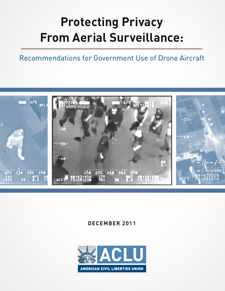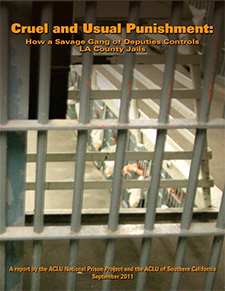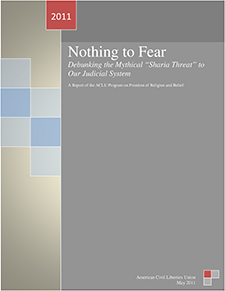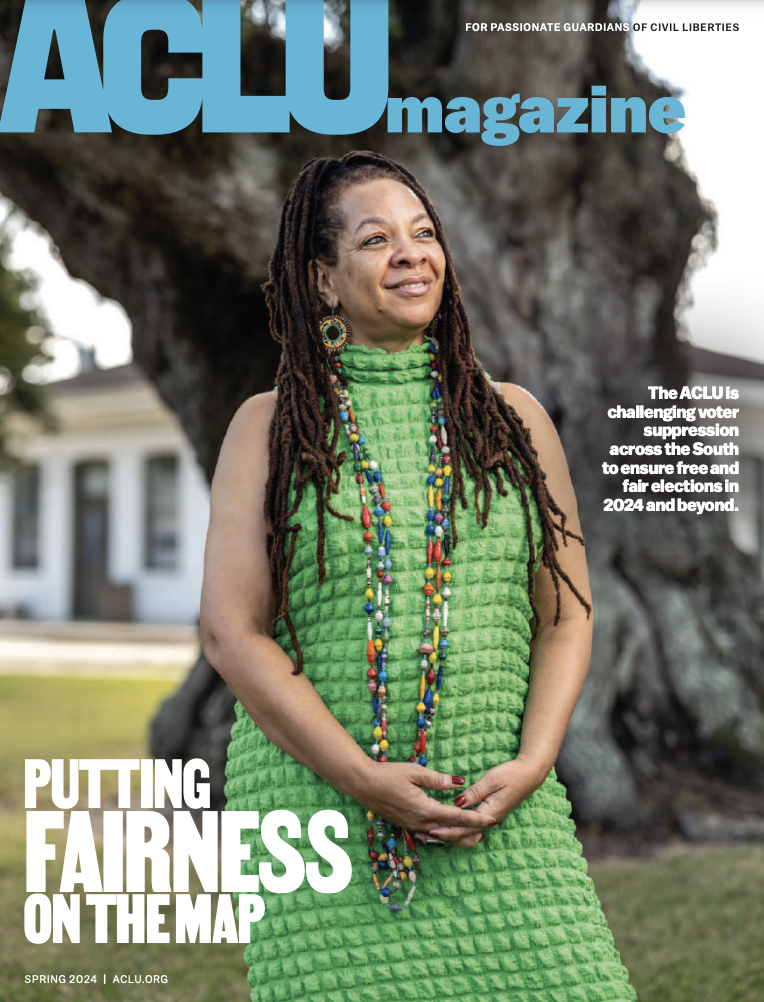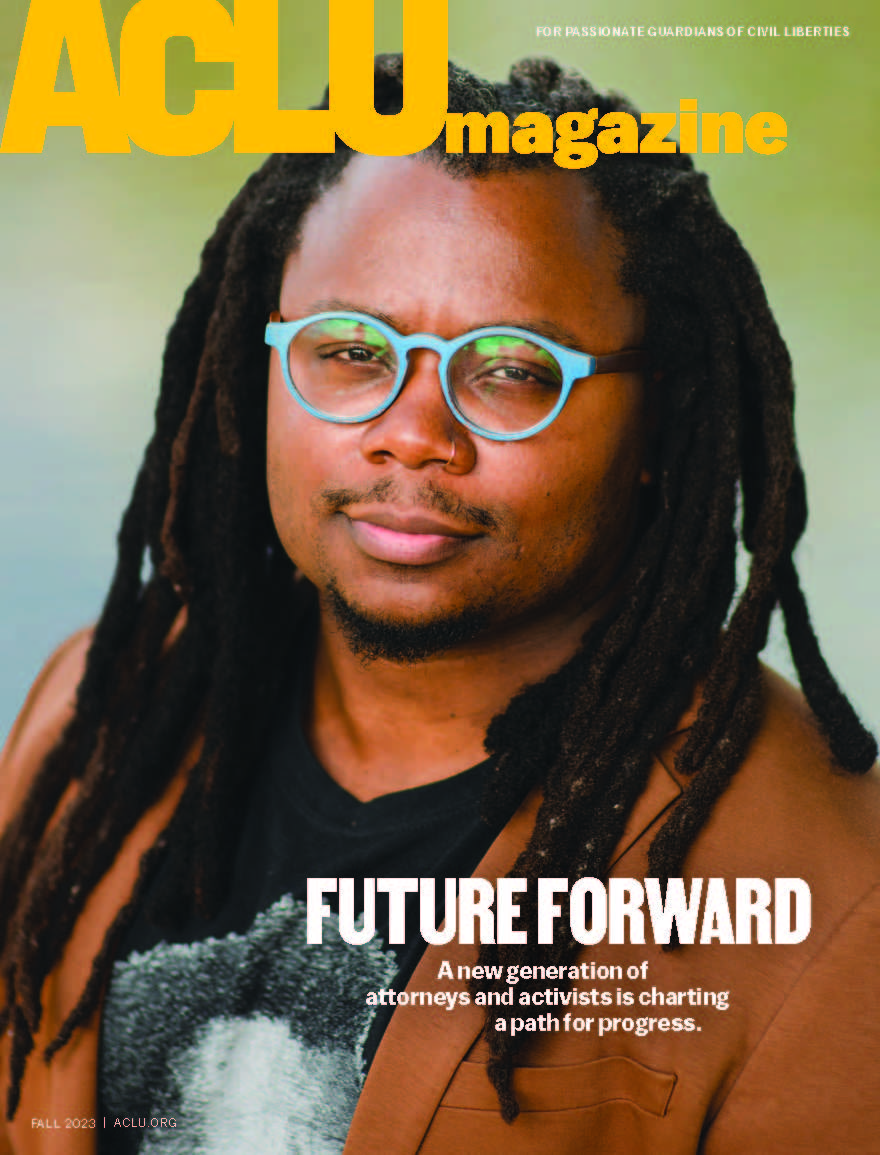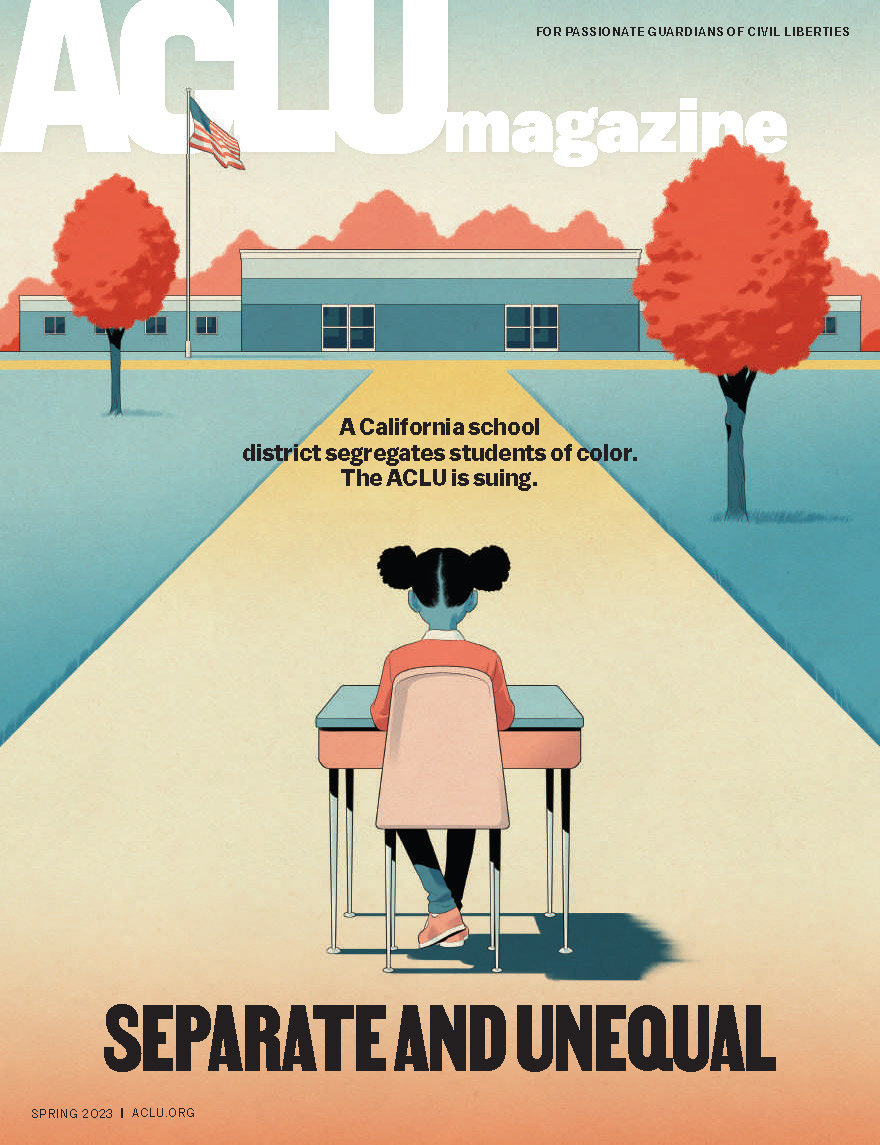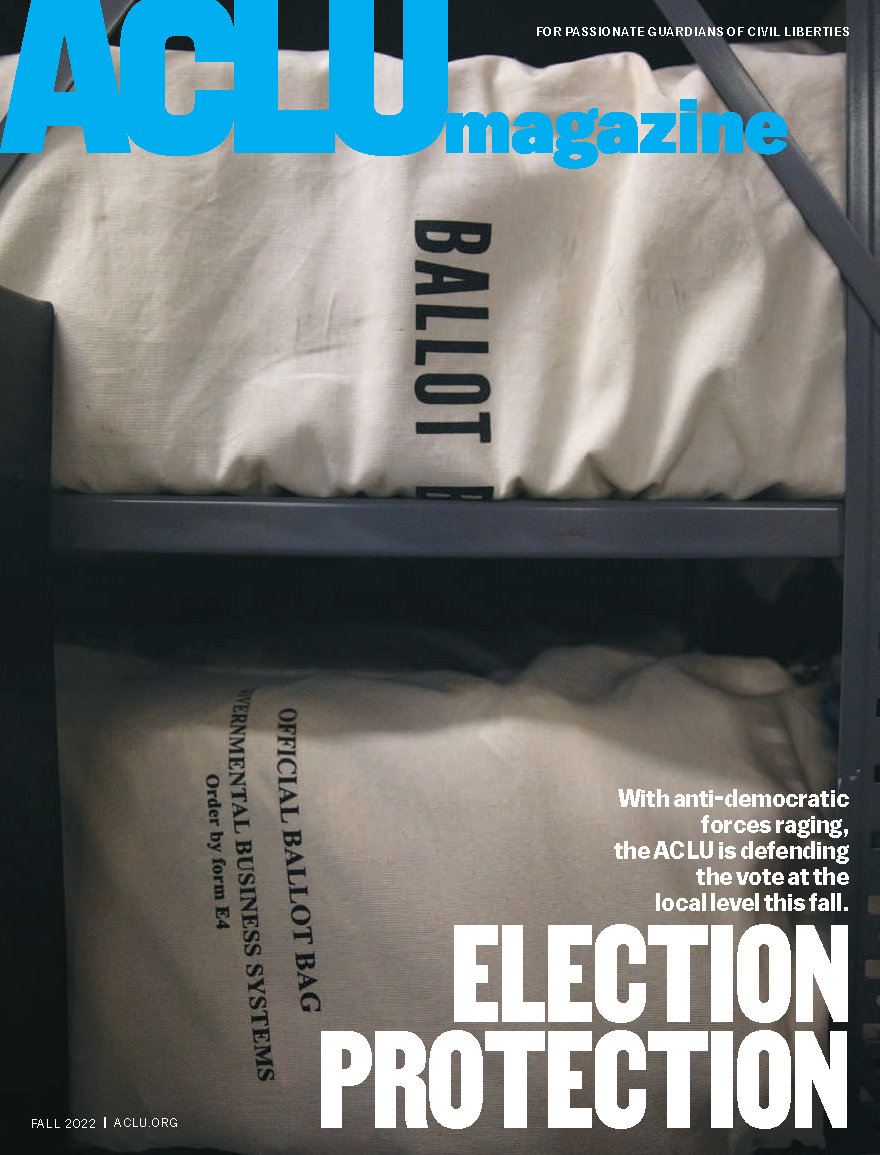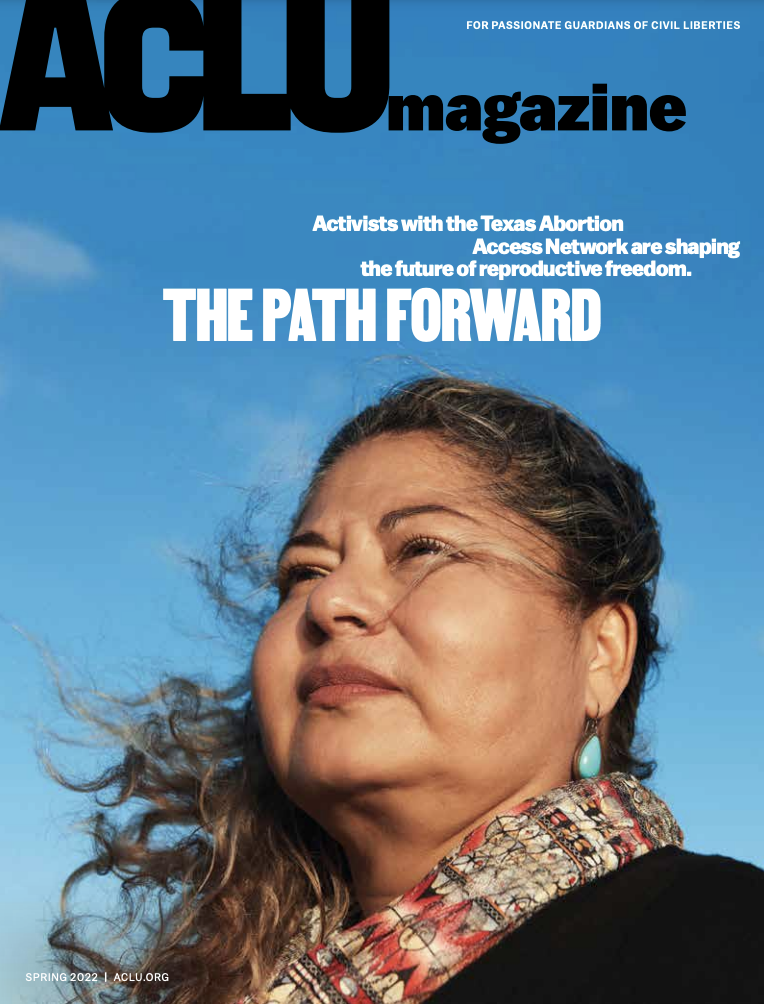Research & Publications
Access in-depth resources and analysis published by the ACLU regarding our most pressing civil liberties issues.
All Publications
Search will open in a new tab using DuckDuckGo
Protecting Privacy From Aerial Surveillance: Recommendations for Government Use of Drone Aircraft
Unmanned aircraft carrying cameras raise the prospect of a significant new avenue for the surveillance of American life. Many Americans have heard of these aircraft, commonly called “drones,” because of their use overseas in places like Afghanistan and Yemen. But drones are coming to America, and, as an ACLU report concludes, protections must be put in place to guard our privacy. Download the report »
As technology is quickly becoming cheaper and more powerful, and interest in deploying drones among police departments is increasing around the country, our privacy laws are not strong enough to ensure that the new technology will be used responsibly and consistently with democratic values.
In early 2012, the Federal Aviation Administration is expected to propose new rules to make it much easier for law enforcement agencies to gain permission to use drones in the U.S. If the FAA is unable to implement the needed reforms, then Congress must act.
The ACLU’s report outlines a set of protections that would help protect Americans’ privacy in the coming world of domestic drones. The report recommends that drones should not be deployed unless there are grounds to believe that they will collect evidence on a specific crime. If a drone will intrude on reasonable privacy expectations, a warrant should be required. The report also calls for restrictions on retaining images of identifiable people, as well as an open process for developing policies on how drones will be used. Download the report »
Routine aerial surveillance in American life would profoundly change the character of public life in the United States. Rules must be put in place to ensure that we can enjoy the benefits of this new technology without bringing us closer to a “surveillance society” in which our every move is monitored, tracked, recorded, and scrutinized by the authorities.
Shocking: The Lack of Responsible Taser Policy in Minnesota
In July, 2006, the ACLU-MN sent out a data practices request to all Minnesota law enforcement agencies to determine what Minnesota’s policy is concerning the use of Tasers by peace officers. From that time to 2010, interns continued to contact agencies to gather responses.
This report compiles scholarly research conducted on Tasers and the impact of Taser use on the human body. Potential risks include heart arrhythmia, changes to blood chemistry affecting respiration, burns, muscle and bone injuries, seizures and pain. “Excited delirium” is a term coined as a cause of death in cases which involved Taser use, although excited delirium is not a medical term. International analysis of Tasers shows that the devices cause excruciating pain.
Cruel and Usual Punishment: How a Savage Gang of Deputies Controls L.A. County Jails
To be an inmate in the Los Angeles County jails is to fear deputy attacks. In the past year, deputies have assaulted scores of non-resisting inmates, according to reports from jail chaplains, civilians, and inmates. Deputies have attacked inmates for complaining about property missing from their cells. They have beaten inmates for asking for medical treatment, for the nature of their alleged offenses, and for the color of their skin. They have beaten inmates in wheelchairs. They have beaten an inmate, paraded him naked down a jail module, and placed him in a cell to be sexually assaulted. Many attacks are unprovoked. Nearly all go unpunished: these acts of violence are covered up by a department that refuses to acknowledge the pervasiveness of deputy violence in the jail system.
Deputies act with such impunity that in the past year even civilians have begun coming forward with eyewitness accounts of deputies beating non-resisting inmates in the jails. These civilian accounts support the seventy inmate declarations describing deputy-on-inmate beatings and deputy-instigated inmate-on-inmate violence and deputy threats of assaults against inmates that the ACLU Foundation of Southern California (ACLU/SC) has collected in the past year, as well as the myriad inmate declarations the ACLU/SC has collected over the years.
The violence that takes place in the Los Angeles County jails is far from normal. These are not average jails with isolated or sporadic incidents of deputy misbehavior. Thomas Parker, a former FBI Agent and Assistant Special Agent in Charge of the Bureau’s Los Angeles Field Office, reviewed inmate, former inmate, chaplain and civilian declarations, reports, correspondence, media articles, and legal filings, and found: “Of all the jails I have had the occasion to visit, tour, or conduct investigations within, domestically and internationally, I have never experienced any facility exhibiting the volume and repetitive patterns of violence, misfeasance, and malfeasance impacting the Los Angeles County jail system. …” “There is at least a two decade history of corruption within the ranks of the Los Angeles Sherriff’s Department (LASD). In most of those cases, lower level deputies and civilian employees were prosecuted, but no one at the command level responsible for those employees appears to have been held accountable and appropriately punished for failure to properly supervise and manage their subordinate personnel and resources. In my opinion, this has provided the ‘seedbed’ for continued lax supervision, violence, and corruption within LASD and the county jails it administers,” Mr. Parker concluded.
The Kolts Commission “made various recommendations for reform within the LASD to then Sheriff Sherman Block and the Board of Supervisors, which, if implemented back then, have seemingly not survived over the past two decades, since excessive use of force, especially in the jails, is still common place in 2011.”
Mr. Parker’s conclusion is based on his extensive experience with investigations into malfeasance by law enforcement agencies, including in jails and prisons throughout the country. He oversaw the FBI investigation into the highprofile Rodney King beating, studying Los Angeles police officers’ use of excessive force. He played the same role in a major FBI investigation into corruption in the LASD Narcotics Division. In the words of Mr. Parker: “The misfeasance and malfeasance of LASD described in this report, and in the litigation for which it has been prepared, should not be allowed to continue nor to perpetuate itself, as it has apparently done over the past two decades and perhaps longer. To allow this to continue would be nothing short of criminal.”
Report - A Call to Courage: Reclaiming Our Liberties Ten Years After 9/11
An ACLU report release to coincide with the 10th anniversary of 9/11 warns that a decade after the attacks, the United States is at risk of enshrining a permanent state of emergency in which core values must be subordinated to ever-expanding claims of national security.
More on Civil Liberties After 9/11
The report, entitled, "A Call to Courage: Reclaiming Our Liberties Ten Years after 9/11," explores how sacrificing America's values – including justice, individual liberty, and the rule of law – ultimately undermines safety.
Read the full report
Everywhere And Forever War
The report begins with an examination of the contention that the U.S. is engaged in a "war on terror" that takes place everywhere and will last forever, and that therefore counterterrorism measures cannot be balanced against any other considerations such as maintaining civil liberties. The report states that the United States has become an international legal outlier in invoking the right to use lethal force and indefinite military detention outside battle zones, and that these policies have hampered the international fight against terrorism by straining relations with allies and handing a propaganda tool to enemies.
A Cancer On Our Legal System
Taking on the legacy of the Bush administration's torture policy, the report warns that the lack of accountability leaves the door open to future abuses. "Our nation's official record of this era will show numerous honors to those who authorized torture – including a Presidential Medal of Freedom – and no recognition for those, like the Abu Ghraib whistleblower, who rejected and exposed it," it notes.
Fracturing Our “More Perfect Union”
The report details how profiling based on race and religion has become commonplace nationwide, with the results of such approaches showing just how wrong and ineffective those practices are. "Targeting the American Muslim community for counterterrorism investigation is counterproductive because it diverts attention and resources that ought to be spent on individuals and violent groups that actually pose a threat," the report says. "By allowing – and in some cases actively encouraging – the fear of terrorism to divide Americans by religion, race, and belief, our political leaders are fracturing this nation’s greatest strength: its ability to integrate diverse strands into a unified whole on the basis of shared, pluralistic, democratic values."
A Massive and Unchecked Surveillance Society
Concluding with the massive expansion of surveillance since 9/11, the report delves into the many ways the government now spies on Americans without any suspicion of wrongdoing, from warrantless wiretapping to cell phone location tracking – but with little to show for it. "The reality is that as governmental surveillance has become easier and less constrained, security agencies are flooded with junk data, generating thousands of false leads that distract from real threats," the report says.
“A Call to Courage” points out that many controversial policies have been shrouded in secrecy under the rubric of national security, preventing oversight and examination by the public. "We look to our leaders and our institutions, our courts and our Congress, to guide us towards a better way, and it is now up to the American people to demand that our leaders respond to national security challenges with our values, our unity – and yes, our courage – intact."
Nothing to Fear: Debunking the Mythical "Sharia Threat" to Our Judicial System
Across the country, state legislators are considering proposed laws that would limit the ability of courts to adjudicate lawsuits brought by Muslims. Proponents of these measures argue that they are necessary because so-called “Sharia law” is somehow taking over our courts. These claims are, simply put, wrong. They are based both on misinformation and a misunderstanding of how our judicial system works.
There is no evidence that Islamic law is encroaching on our courts. On the contrary, the court cases cited by anti-Muslim groups as purportedly illustrative of this problem actually show the opposite: Courts treat lawsuits that are brought by Muslims or that address the Islamic faith in the same way that they deal with similar claims brought by people of other faiths or that involve no religion at all. These cases also show that sufficient protections already exist in our legal system to ensure that courts do not become impermissibly entangled with religion or improperly consider, defer to, or apply religious law where it would violate basic principles of U.S. or state public policy.
This report examines specific court cases that have been repeatedly cited by anti-Muslim advocates as evidence of the so-called “Sharia threat.” Breaking the cases down into three categories — cases involving religious freedom claims; contracts, arbitrations, and other agreements; and public policy issues — the report provides details of each case and puts them into proper context. It does not take a lawyer or expert to see that the cases are routine legal matters and do not stand for the principles that proponents of anti-Sharia measures contend. Rather, these cases are red herrings, meant to distract from the true aim of the recently proposed Sharia bans – to denigrate an entire faith system and to deny its followers the same access to the judicial system enjoyed by citizens of other creeds.
ACLU Magazine
Published twice a year, ACLU Magazine shares updates on the ACLU's critical litigation and advocacy work across the country and tells the stories of the activists, attorneys, and clients at the heart of each case and campaign. To receive ACLU Magazine by mail, become a monthly donor today.
Stay Informed
Sign up to be the first to hear about how to take action.

